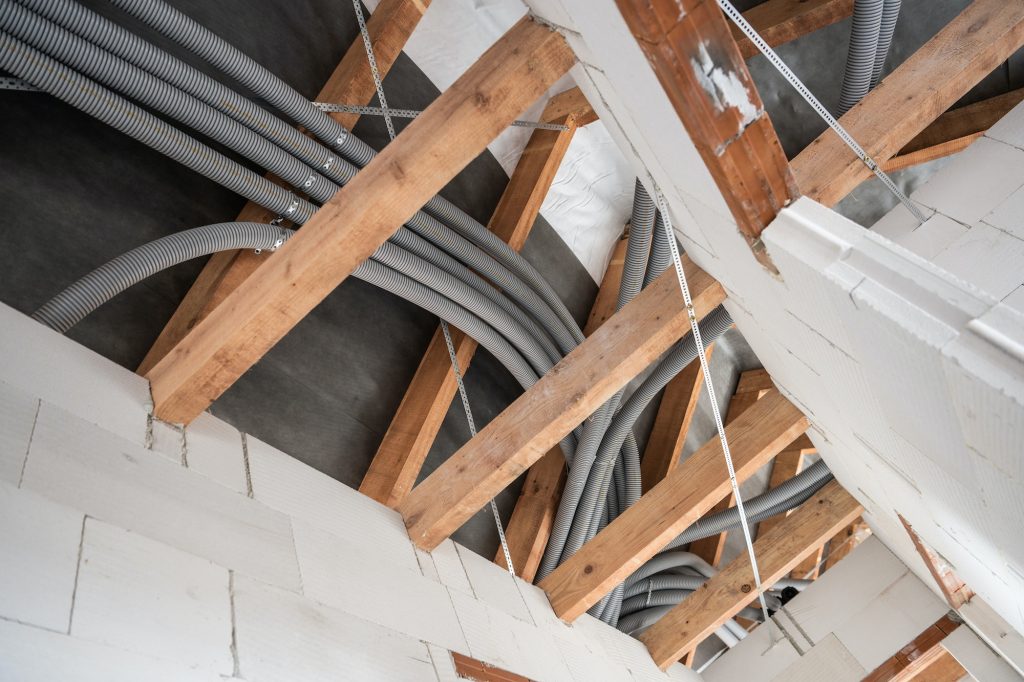Introduction
Water heating accounts for a significant portion of a household’s energy consumption, and with the increasing demand for energy efficiency, alternative water heating methods are becoming increasingly popular. One such alternative method is the use of heat recovery systems. In this article, we’ll explore heat recovery systems, how they work, and their advantages over conventional water heating systems.

Understanding Heat Recovery Systems
Heat recovery systems are an alternative method of heating water that captures heat that would otherwise be lost and uses it to heat water. These systems work by transferring heat from one source to another. For example, heat recovery systems can transfer heat from wastewater to fresh water or air to water.
Heat recovery systems offer several advantages over conventional water heating methods. They are more energy efficient, capturing heat that would otherwise be lost and using it to heat water. Heat recovery systems are often more environmentally friendly, as they reduce the energy needed to heat water, thereby reducing greenhouse gas emissions.
Types of Heat Recovery Systems
There are several different types of heat recovery systems, including:
- Air-to-Water Heat Recovery Systems
- Ground-Source Heat Recovery Systems
- Exhaust Air Heat Recovery Systems
- Waste Water Heat Recovery Systems
Each type of heat recovery system works slightly differently and has its own advantages and disadvantages. For example, air-to-water heat recovery systems are ideal for homes with forced air heating systems. In contrast, ground-source heat recovery systems are best suited for homes with geothermal heating systems.
Installing Heat Recovery Systems
If you’re considering installing a heat recovery system, several factors must be considered. Firstly, you’ll need to determine the best heat recovery system for your home. You’ll also need to consider the cost of installing the system and ongoing maintenance costs.
Heat recovery systems can be expensive to install but can also result in significant energy savings over time. It’s essential to research and consult a professional to determine if a heat recovery system is right for you and to ensure it is installed correctly.
Comparison of Heat Recovery Systems with Conventional Water Heating Systems
When comparing heat recovery systems with conventional water heating systems, there are several key factors to consider, including cost, energy efficiency, and environmental impact.
In terms of cost, heat recovery systems can be more expensive to install than conventional water heating systems, but they can also result in significant energy savings over time. This means that the overall cost of ownership may be lower for heat recovery systems.
In terms of energy efficiency, heat recovery systems are generally more efficient than conventional water heating systems, as they capture heat that would otherwise be lost and use it to heat water. This results in lower energy bills and a reduced environmental impact.
Finally, when it comes to environmental impact, heat recovery systems have a lower effect than conventional water heating systems, as they reduce the amount of energy needed to heat water and therefore produce fewer greenhouse gas emissions.
Government Incentives for Installing Heat Recovery Systems
In many countries, the government incentivizes homeowners to install heat recovery systems. These incentives can include tax credits, rebates, and grants. It’s essential to check what incentives are available in your area to determine if a heat recovery system is a financially viable option for you.
Case Studies of Heat Recovery Systems in Use
To help illustrate the benefits of heat recovery systems, let’s look at two case studies – one residential and one commercial.
In the residential case study, a family installed a heat recovery system in their home and saw a reduction in their monthly energy bills of 30%. The plan was easy to use and required minimal maintenance, making it an excellent option for families looking to save money and reduce their environmental impact.
In the commercial case study, a hotel installed a heat recovery system and saw a reduction in their energy bills by 40%. The plan was easy to install and required minimal maintenance, making it an excellent option for businesses looking to reduce their energy costs and environmental impact.
Conclusion
In conclusion, heat recovery systems offer several advantages over conventional water heating methods. They are more energy efficient, more environmentally friendly, and can result in significant energy savings over time. Suppose you’re considering installing a heat recovery system. In that case, it’s essential to do your research and consult a professional to ensure you choose the right design for your home or business.
FAQs
- What is a Heat Recovery System? A heat recovery system is an alternative method of heating water that captures heat that would otherwise be lost and uses it to heat water.
- How does a Heat Recovery System work? Heat recovery systems work by transferring heat from one source to another. For example, heat can be transferred from wastewater to fresh water or air to water.
- What are the different types of Heat Recovery Systems? The different types of heat recovery systems include air-to-water, ground-source, exhaust air, and waste water heat recovery systems.
- How much does it cost to install a Heat Recovery System? The cost of installing a heat recovery system varies depending on the type of system and the size of your home or business. Researching and consulting a professional is essential to determine the cost of installing a heat recovery system.
- Are Heat Recovery Systems more energy efficient than conventional water heating systems? Yes, heat recovery systems are generally more energy efficient than traditional water heating systems, as they capture heat that would otherwise be lost and use it to heat water. This results in lower energy bills and a reduced environmental impact.

